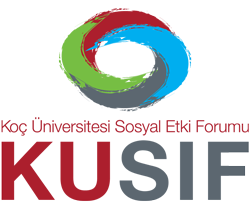This course aims at teaching students the necessary knowledge, skills, and competencies to be able to design and write project proposals that have the potential to make a positive social impact for The United Nations Agenda 2030 and its 17 Sustainable Development Goals (SDGs). The primary aim of the course is to make students familiar with the tools used while developing a social project, writing a project proposal, and project cycle management.
The main deliverable of the course is the social impact strategy based on the “Theory of Change” of a social impact actor; a social enterprise, a social responsibility project of a business or a civil societal organization; in collaboration with the members of these institutions. The students are expected to understand and grasp fully the project and come up with a useful “Theory of Change” that will be beneficial for these actors. The social impact strategy expected to be presented at the end of the course includes Theory of Change, Stakeholders’’ Analysis, Outcome Mapping, and Data Collection Plan. This kind of endeavor will necessitate visits to CSOs and will need a thorough knowledge of the social problem in question, as well as the context that the project is going to operate in.
The following organizations participated in the course as social impact actors: Longi, Tohum Otizm Foundation, Mikado Sustainable Development Consultancy, Açık Açık, Toplum Gönüllüleri FoundationSarıyer Women Entrepreneurs Cooperative, Esas Sosyal, Kodluyoruz, EÇADEM, SPoD, Tarlamvar, Ford Otosan-Bal Arıları, Small Project İstanbul, United Nations Development Programme (UNDP), Sulukule Gönüllüleri Association, Cerebral Palsy (TSÇV), Karakutu Association, Gelecek Daha Net, Turkey Family Health and Planning Foundation(TAPV), Hrant Dink Foundation, Buğday Assosiation, Assosiation for the Protection of Cultural Heritage (KMKD), Toyi, Fazla Gıda, Sabancı Foundation
Credits: 3
This course is a core course of “Sustainability and Impact Management Track Program’’ and is given to undergraduate students each spring by Dr. Gonca Ongan ve Agata Fortuna.
